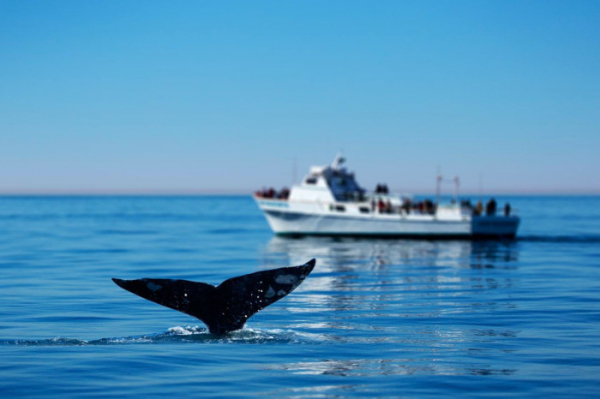Indian Ocean's whale watching aims for gold standard in sustainability
Whale watching best practice in Sri Lanka is amongst the highlights of a news round-up from the Sustainable Whale and Dolphin Tourism Network of the Indian Ocean Rim Ocean (IORA).
The Network is a partnership between IORA and the IWC. It was launched in 2016 in recognition of the rich potential for whale watching tourism in the region. Bringing together countries of the Indian Ocean to work collaboratively and share best practice, the Network aims to set an international gold standard in sustainable whale watching.
Their latest news update includes a case study from a whale watching operator in Sri Lanka and a study of the approach taken by the government of Oman, where government agencies are partnering with non-governmental organisations in order to safeguard vulnerable populations including the endangered Arabian Sea humpback. The update also includes a Legal Perspective, looking at hard and soft approaches to regulation and the importance of co-operation and interaction in order to build regulatory frameworks that provide effective protection for animals that often migrate across national borders.
The IWC's Whale Watching Handbook also features in the latest update. This interactive online resource offers comprehensive and free resources on whale, dolphin and porpoise watching. It was launched in 2018 and includes an interactive map, explaining the whale watching activities in different parts of the world, case studies outlining both positive experiences and any lessons learnt by those involved in the whale watching industry, a comprehensive table of the regulations, and a species section, including annotated illustrations and other information to maximise the educational opportunities presented by whale watching trips.
Click here to read the latest news from the Sustainable Whale and Dolphin Tourism Network of the Indian Ocean Rim Ocean.
Click here to access the Whale Watching Handbook.

